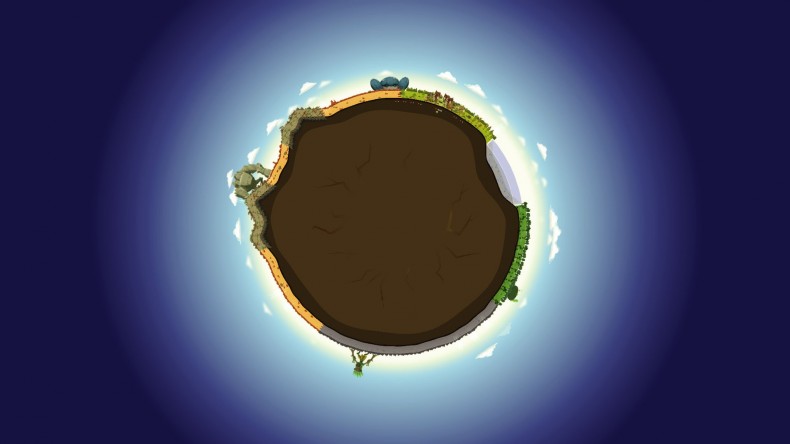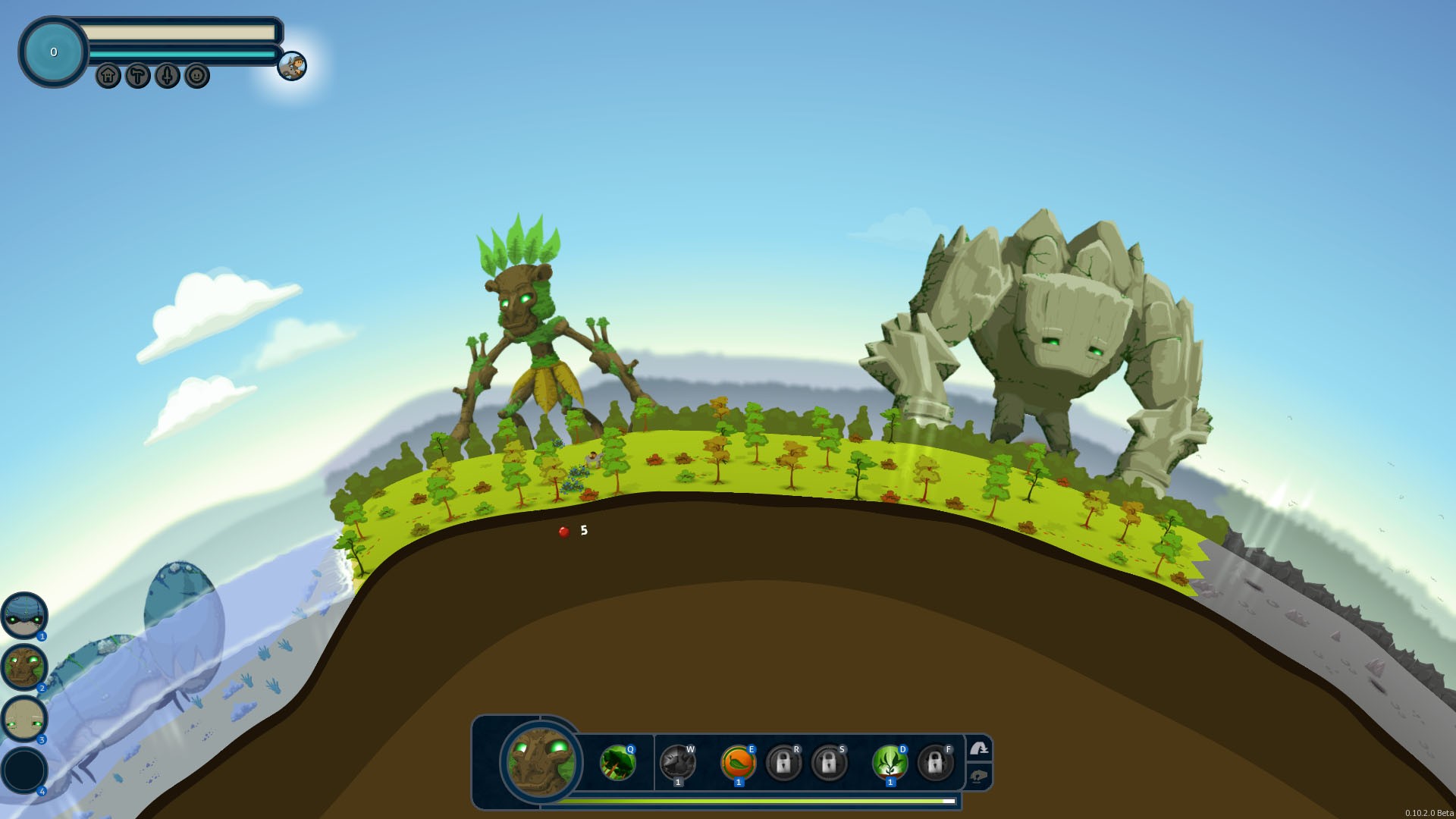October 11, 2016.
Initially, you’d be forgiven for thinking Reus a typical god game. Starting with a blank, unformed world, the tutorial quickly introduces you to the Giants of forest, ocean and mountain with whom you are able to terraform the barren plains.
You do this by moving them clockwise or anti-clockwise around the circular surface of your world, and activating their primary power. The ocean Giant, an enormous blue crab, creates seas, while the ent-like forest Giant produces woodland and the mountain Giant can cover your world in desert or raise colossal peaks. The fourth Giant, this one with control over swampland, is unlocked a little later.
What begins as deceptively simple soon becomes much more complex. Once you’ve created a bit of woodland, desert and ocean, you’ll unlock each Giant’s secondary ability. The forest Giant is able to produce berries, the mountain Giant rare minerals and the ocean Giant domestic animals. The world is divided into narrow tiles, and dropping food and livestock onto a few will cause people to settle villages.
Using clever symbiosis, you can manipulate – though not directly control – the settlers. For example, berries placed near chickens will increase the food for any nearby village, while minerals will generate wealth and enable them to expand and advance. They will create projects on their own, such as granaries and mills, and although you have no say in what they build or where, you can help or hinder them by opening the information screen on a given project and providing whatever it’s lacking.
Each game is called an Era, and they begin quite short, lasting around 30 minutes to an hour. When you reach the end and begin again, you’ll take what you unlocked previously into the next Era, with each lasting longer, up to around 2 to 3 hours. It’s quite fun to watch your little civilisations grow and prosper, but it’s even more fun when you discover what Greed does.
Up until you begin to understand avarice, Reus is a simple enough God game with minor puzzle elements, but when you realise that you can foster greed, and therefore conflict, between two nearby civilisations, it all becomes much more interesting. It’s a straightforward enough mechanic, too. You create greed by giving a village an excess of resources, and you create conflict by taking said resources away and giving them to a rival. Before long, your little worshippers will be all riled up and marching off to war. It’s the best way to advance, too, and so war is just as important in Reus as creation.
Bright, cartoony visuals give Reus an inviting aesthetic, and the option to zoom in and watch your little villagers work is nice. You can’t exact holy vengeance on them or get all Book of Job on an unlucky individual like you can in, say, Black & White, and as a result what’s here feels more like a puzzle game at times. You can assign special villagers as emissaries who will sit on a given Giant’s shoulder and grant special abilities, but it’s never explained how or why this happens and feels a little arbitrary when other skills are unlocked through simple progression.
If there’s a real complaint, it’s that Reus is fairly plodding. Your Giants don’t move particularly quickly, and the countdowns on their abilities are quite long. It’s not a fast-paced game and might be too laid back for some.
Reus is a pleasant little God sim that starts off simple enough but soon becomes deeper and more complex as you attempt to guide your greedy little followers to technological glory. It’s not exciting, but it is surprisingly absorbing and challenging.
Deeper than it looks
Charming aesthetic
Slow-paced
No direct control over events
Reus is a pleasant little God sim that starts off simple enough but soon becomes deeper and more complex.







